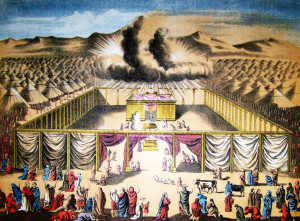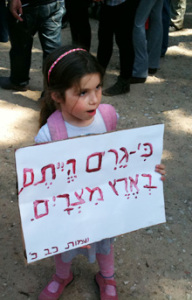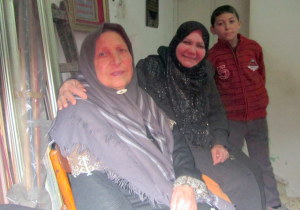
Illustration from the 1890 Holman Bible
“And they will make me a sanctuary and I will dwell among them. ” This remarkable instruction at the opening of this Shabbat Torah reading (Exodus 25-28) raises the question whether it implies the contraction of God of the Universe to a dwelling in a specific construction/space.
Indeed one midrash recognizes this possible dilemma and recounts that Moses upon hearing God’s instruction stepped back saying: God of the Universe, the heaven is your seat the earth is the place of your feet, how can one space contain your presence?” The answer, however, is enfolded in second part of the verse above: “and I will dwell among them.” Since the first part of the verse deals with building of the Tabernacle the expectation is that second part of the verse would say “And I will dwell in it.” Yet, surprisingly this is not what the verse declares; instead it says “and I will dwell among them,” among the people of Israel, and not in this or that space. From the words of the verse we learn that God ordered the building of the Tabernacle not for the sake of having a place to dwell in but so that He could dwell among his people who will follow Him and keep his covenant. And God in return will dwell among them.



